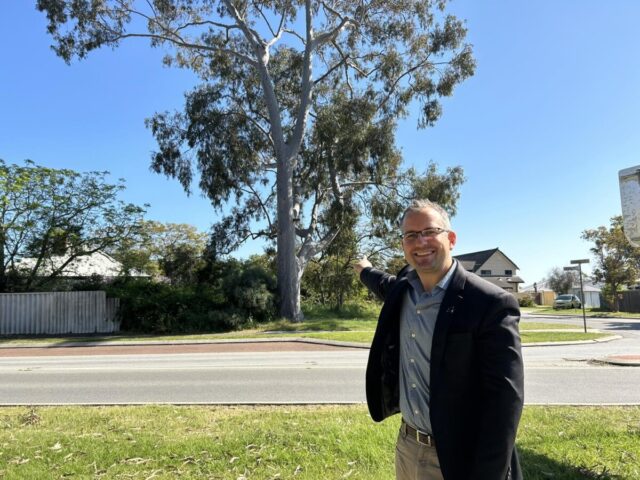
The City of Canning is exploring the possibility of providing financial incentives to ratepayers who successfully nominate significant trees on their private properties for greater protection.
Councillor Ben Kunze successfully moved a motion at the last council meeting requesting the CEO to prepare a report outlining potential financial incentives the City may offer to encourage greater participation in the City’s Significant Tree Register and suggests that rate reductions could be part of the solution.
Since its launch in 2021, only two trees have been nominated onto the register.
“Private property owners are hesitant to nominate extraordinary trees on their property due to a perception that the value of their property will be negatively impacted when they wish to sell the property,” Kunze said.
“I believe the City needs to seriously consider financial incentives to motivate property owners to place their eligible significant tree onto the City’s register.
“Some of these trees are worth tens of thousands of dollars under the Helliwell tree valuation system, and their loss is a financial and environmental loss to the community.”
The Significant Tree Register categorises trees into five levels—national, state, regional, local, and neighbourhood significance—reflecting their importance to the community and environment.
To qualify for the register, trees must also satisfy at least one criterion related to scientific, historical, social, aesthetic, or spiritual value.
If successfully nominated, the trees are then provided greater protection under the town’s local planning scheme.
With only 9.9 per cent of Canning’s local government area covered by tree canopy, it has one of the lowest levels of tree cover among Perth Metropolitan Councils.

Speaking in support of Councillor Kunze’s motion, local Rossmoyne resident Stephen Johnston spoke of the need for incentivisation and believes it wouldn’t negatively impact the Council’s finances.
“We have a drying, hotter climate which killed many established and newly planted trees over the last summer and autumn, with the distinct prospect that this will be repeated in the coming months,” Johnston said.
“The proposed rate reductions or discounts will not blow a hole in the City’s budget because if they did prompt a lot more nominations – as I hope they would – the City would determine how many were accepted for the Register against its clearly defined criteria.”
As part of its 2019 Urban Forest Strategy, the City is aiming to increase urban canopy cover in the local area by 22.3 per cent over the next 20 years by planting more than 60,000 new trees within the next decade.
Councillor Kunze believes there are other solutions to expanding the City’s tree canopy cover than simply planting more trees.
“The City is investing millions of dollars planting trees so that future generations may have these significant trees,” he said.
“It makes more economic sense to protect what we have now, and a financial incentive will hopefully attract more ratepayers to nominate significant trees for consideration.”
The report is expected to be tabled at the March 2025 Ordinary Council Meeting.













